- Home
- Addiction Detox
- Opioid Detox
Opioid Detox
If you are struggling with an addiction to opioids, either prescription or illegal, there is help available for you.
Opioids can be both physically and psychologically addictive, so it is crucial that you undergo a managed opioid detox under the care of medical professionals before beginning a course of intensive counselling.
Continue reading to understand more about the process of an opioid detox and increase your chances of making a full, long-term recovery from opioid addiction.
What Are Opioids And How Do They Work?
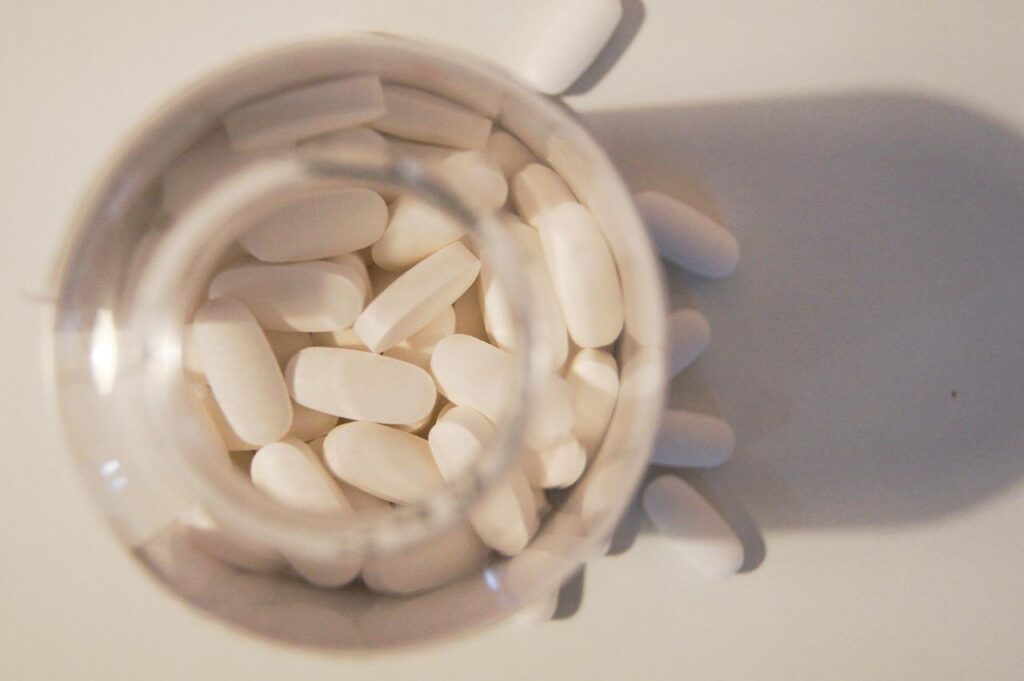
Opioids are a class of medications that are commonly prescribed to treat chronic and short-term pain such as migraines, severe injuries and major dental work.
They have the ability to block pain receptors, effectively preventing the brain from realising that there is pain present.
This is achieved by attaching to opioid receptors, which travel through the spinal cord towards the brain.
The actual pain and injury are still present, but your brain does not receive information from the site and therefore is unable to send pain signals.
While effective at relieving pain and discomfort, opioids can also be highly addictive and in many cases may cause more problems than they solve.
You should only ever take opioids that have been prescribed to you by a doctor, and it is always recommended that you ask about alternative methods of pain relief that are less addictive.
Which Opioids Are Most Commonly Prescribed?
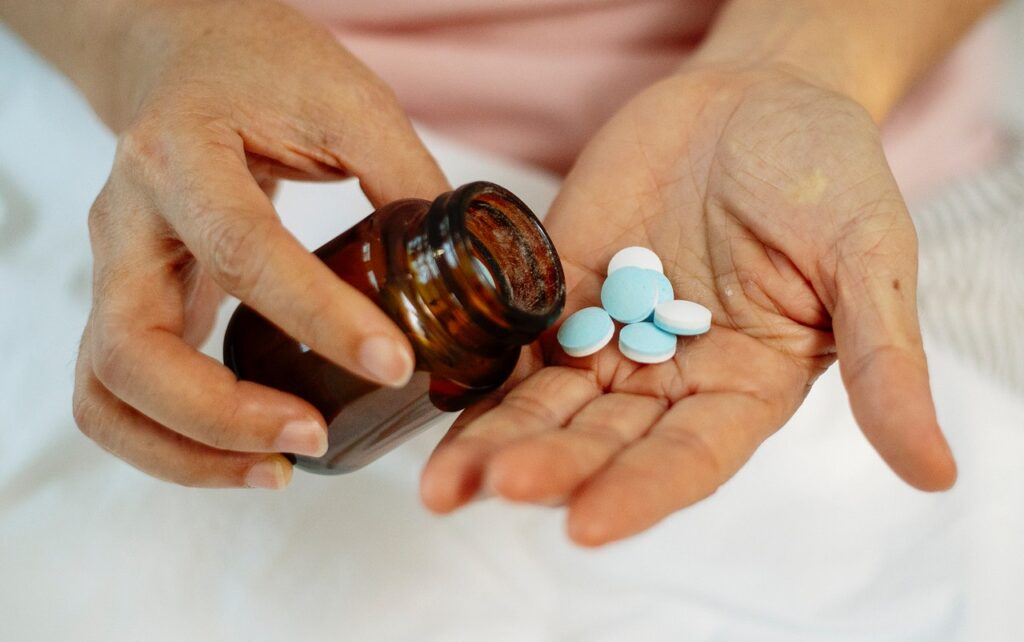
If you have undergone an operation, experienced dental surgery or are living with a painful condition, you may have been prescribed a form of opioid.
As opioids are highly addictive, the prescription of these medications is tightly controlled and highly regulated.
They are usually prescribed on a short-term basis to treat pain after surgery and may be used as part of end-of-life care to keep the patient as comfortable and pain-free as possible.
Others, like methadone, are primarily prescribed as a form of opioid addiction treatment.
If a patient is addicted to heroin then they may switch to methadone throughout the withdrawal process in order to alleviate many of the more unpleasant symptoms.
It is also thought to be easier to taper off and eventually completely stop using methadone when compared to illegal opioids such as heroin.

The following opioids are commonly prescribed in the UK for the above reasons:
Your doctor should ensure that you are aware of the risks of taking prescribed opioids, and have a plan to help you withdraw from this medication safely and effectively.
How Are Opioids Used Illegally?
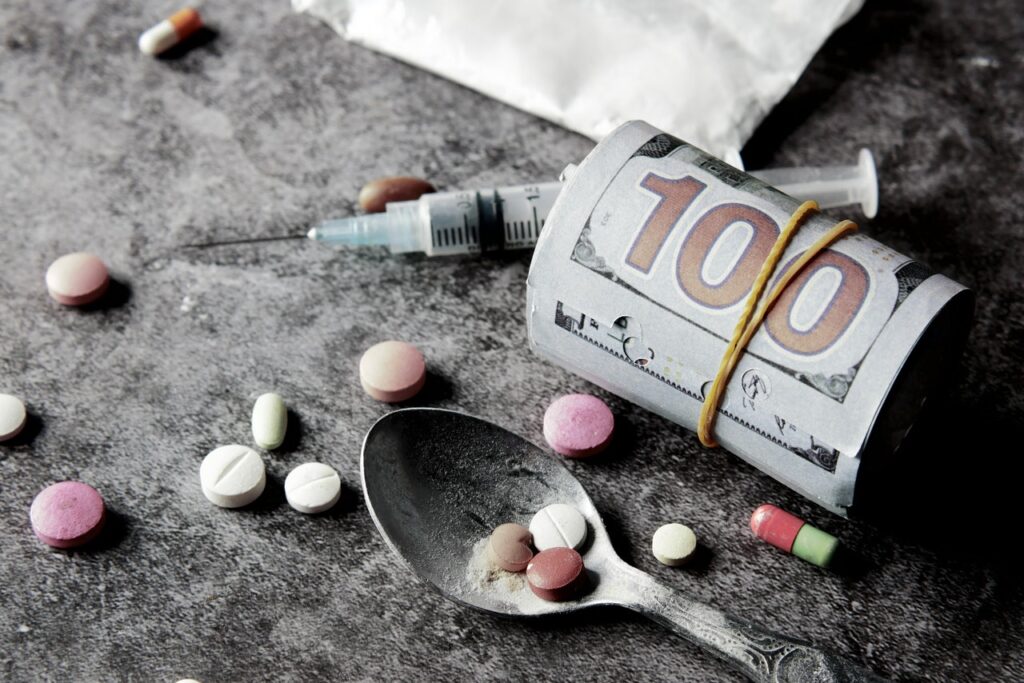
While prescription opioids are legal, there are many ways in which people can use them illegally.
Some people may steal, purchase or ask for other people’s prescribed opioids, or visit multiple doctors in order to obtain multiple prescriptions.
While it is common for people to misuse genuine prescription opioids, there is also a growing epidemic of illegal synthetic opioids flooding the market.
There are many names for these street opioids, including the following:
- Black tar
- Dope
- Cheese
- Grey death
- Pink
- Smack
- Horse
The most well-known illegal opioid is heroin, which is usually injected or smoked to produce an extremely addictive high.

Fatal overdoses due to heroin and other street opioids are becoming more common than ever, particularly as other unknown chemicals are often mixed into the substance to bulk it out.
It is impossible to know which ingredients are in street opioids, and they are usually produced at a far higher strength than prescription opioids.
Fentanyl can be up to 100 times stronger than prescription morphine, and many people are unaware of just how much of the substance they are taking.
This can lead to a long-term and crippling addiction as well as increase the risk of overdose and death.
What Are The Signs And Symptoms Of Opioid Addiction?
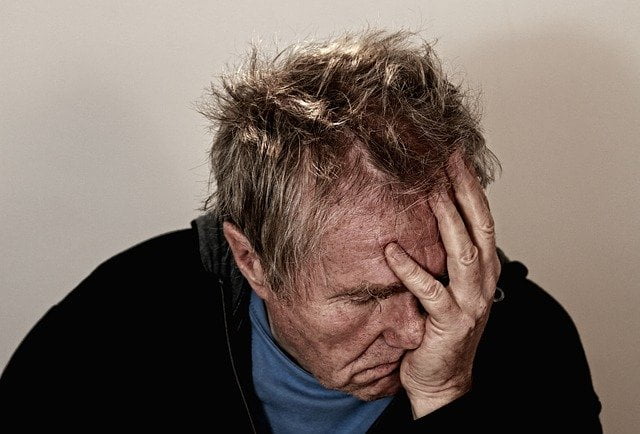
Someone who is addicted to opioids has developed a physical or psychological dependency on one or more forms of this substance.
They may have strong and seemingly uncontrollable cravings for opioids, even when they are not medically required to take them.
If your opioid use has started to disrupt your daily life, put a strain on your relationships or become a key priority over other activities then you may be dealing with an opioid addiction.
It can be difficult to spot the signs at first, particularly if you are taking opioids due to a medical reason as many people believe that prescription drugs are completely safe to use and have no risks attached to them.

Even if you have been prescribed opioids by a doctor and have been taking them correctly, it is still possible to develop an opioid addiction.
Common signs and symptoms of opioid addiction include:
- A desire to stop using opioids but being unable to control or reduce the use
- Intense cravings for opioids
- Sudden, unexplainable weight loss
- Constantly appearing drowsy, tired and fatigued
- Becoming withdrawn and isolated from family and friends
- Often displaying flu-like symptoms such as fever and runny nose
- Lowered sex drive
- Poor performance at school or work
- Washing less frequently, appearing dishevelled
- Experiencing legal troubles
- Experiencing financial difficulties
If you have developed an opioid addiction, there is help available in the form of both inpatient and outpatient programmes at various treatment centres around the UK.
What Are The Signs Of Opioid Withdrawal?

Once you begin using opioids, either legally or illegally, your brain and body must learn how to function despite the presence of a strong depressant.
The heart must begin to work harder and faster, your brain begins to function differently and even your gastrointestinal system will be affected.
When the opioids are reduced or completely stopped, it can take some time for these systems to rebalance and begin functioning normally again and this adjustment period can result in a range of withdrawal symptoms.
You may not experience all of the below side effects, as opioid withdrawal symptoms affect each person differently depending on a number of factors.
These include the severity of your addiction, the type of opioid you are addicted to and your general physical and mental health.

Early symptoms of opioid withdrawal may include:
- Increased feelings of anxiety
- Excessive perspiration
- Feeling restless and agitated
- Insomnia and nightmares
- Frequent yawning
- Flu-like symptoms such as a runny nose and aching muscles
- Uncontrollable watering eyes
Later symptoms of opioid withdrawal may include:
- Nausea and vomiting
- Gastrointestinal issues such as diarrhoea
- Increased heart rate
- High blood pressure
- Stomach pains and cramps
- Blurred vision
These withdrawal symptoms can be uncomfortable and unpleasant, but it’s important to keep in mind that they will eventually pass.
In the meantime, ensure that you are in a safe and comfortable environment throughout the process and follow any medical instructions that you are given.
What Happens During Opioid Detox?

Before you begin an opioid detox you will be required to undergo a full physical and psychological assessment to determine your overall health and any risk factors that may affect your recovery.
This may include blood tests, interviews with friends and family and a review of your medical notes.
Medical staff will then be able to prescribe you any necessary medications to help you through the detox process.
During an opioid detox, you will be closely monitored so that staff can provide immediate medical assistance if required.
It is also recommended that you focus on gentle, calming activities and exercises such as light exercise, mindfulness, mediation and general rest.
This can help your mind and body heal and recover from your opioid addiction.
How Long Does An Opioid Detox Last?

Each person experiences an opioid detox differently, but the timeframe is usually fairly similar across the board.
Early symptoms of opioid detox usually begin to appear between 8 and 24 hours of starting the detox process.
In general, people with a more severe addiction tend to notice symptoms appearing earlier than those with a more mild addiction.
These symptoms will usually increase and peak between 48 and 72 hours, which is often the most dangerous part of the process as patients may be overwhelmed with intense cravings and urges to use opioids.
Most people find that their withdrawal symptoms improve dramatically between 7 and 10 days of starting an opioid detox, with most physical side effects completely disappearing.

Some people experience long-lasting withdrawal symptoms that continue for weeks or even months after completing an opioid detox.
These are usually psychological in nature and are known as Post-Acute Withdrawal Syndrome (PAWS), requiring long-term counselling and support.
Certain factors can affect the length and severity of the withdrawal process, with the most common listed below:
- The type of opioid you have been using
- How long you have been using opioids for
- How frequently you use opioids
- The way you ingest opioids
- Any family history of addiction and/or opioid use
- Any physical or mental health issues
Your medical team may be able to give you an estimate regarding the length of your opioid detox, depending on the above factors and any other issues discovered during their initial assessment of your condition.
In certain cases, a rapid 5-day opiate detox may be possible.
Is Opioid Detox Dangerous?
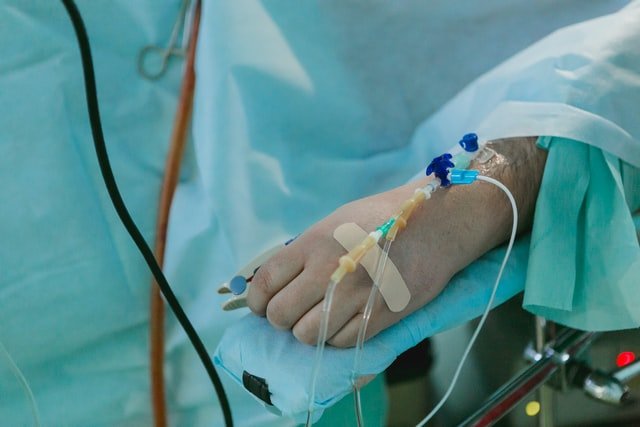
The majority of people that undergo an opioid detox will not experience any life-threatening symptoms as long as they are detoxing as part of a professional treatment programme under medical supervision.
Most of the symptoms are similar to that of a severe flu bug, but they can be dangerous in extreme cases.
Excessive vomiting, diarrhoea and sweating can result in dehydration if proper care is not taken, which can lead to heart failure and other complications if not promptly treated.
If you have any underlying physical health conditions then these should be taken into account when planning an opioid detox, as your body may react differently to the withdrawal symptoms.
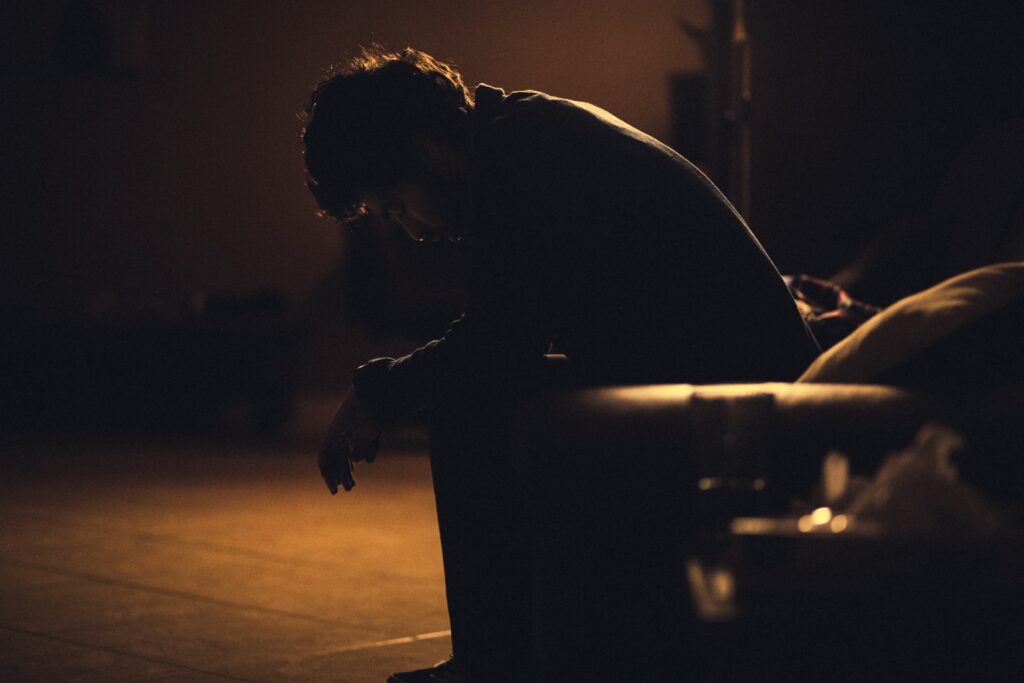
Additionally, your tolerance levels of certain opioids can drop drastically once you begin the withdrawal process.
If the cravings and symptoms become overwhelming, relapsing can prove fatal as your body may no longer be able to tolerate your usual dosage which can lead to an overdose.
As a result, the safest way to detox from opioids is at a rehab clinic that specialises in this type of treatment, with these techniques giving you a greater chance of experiencing long-term recovery.
How Can I Safely Undergo Opioid Detox?

Due to the potentially life-threatening situations described above, it is never recommended to undergo an unsupervised opioid detox from home.
The possibility of relapse is too high, particularly as you will not have access to the various medications that can be prescribed by medical staff at rehab to help make the process more comfortable.
Instead, you should always choose to detox from opioids at a specialised and experienced rehab centre.
You will benefit from 24/7 medical supervision throughout the entirety of the detox process, allowing for swift and effective action if you begin to suffer from any severe side effects.
Detoxing at a rehab clinic also means that you will be in the system, allowing you to begin counselling and therapy as soon as the detox process is complete.
This can increase your chances of long-term recovery and help to reduce your chances of relapse after treatment.
Which Medications Can I Use During Opioid Detox?
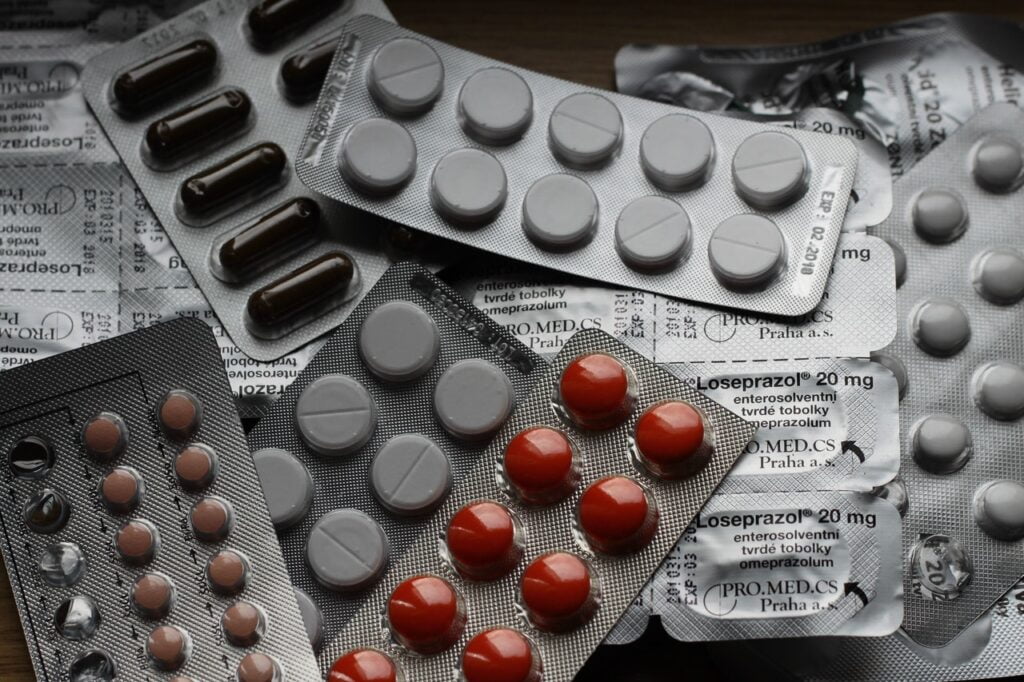
There are a number of prescription medications that can be administered to relieve the more unpleasant and uncomfortable symptoms of opioid withdrawal.
These should only be prescribed by experienced medical staff, ideally within a specialised rehab clinic or treatment centre.
The most effective prescription medications for opioid detox include:
- Methadone
- Clonidine
- Buprenorphine
As well as prescription medications, you may wish to use over-the-counter medications to help alleviate certain symptoms.
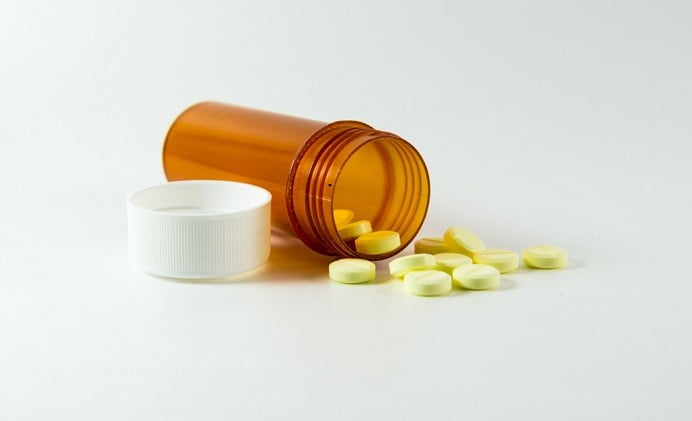
New Zealand Valium/Diazepam New Zealand Valium/Diazepam
These may include the following:
- Anti-nausea medication
- Sleep aids such as melatonin
- Ibuprofen
- Paracetamol
- Aspirin
Always check with your doctor or medical team before taking any medication to help with opioid withdrawal, as they may have the potential to negatively interact with other substances in your system.
Get The Support You Need Today

For tailored support for your opioid detox, contact our team today at 0800 088 66 86.
Our helpline advisers can kickstart your pre-admissions process and offer a helping hand in this difficult time.
They are knowledgeable about all forms of addiction treatment and can talk you through all your options.
Although it can be difficult opening up about addiction, it really is for the best.
For a free consultation and no-obligation phone call, contact us today.


